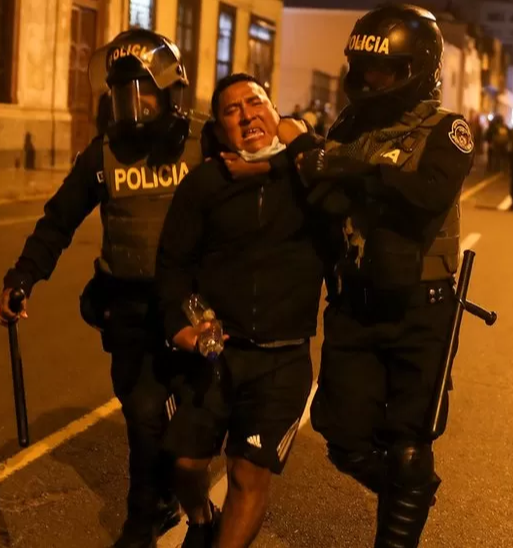
London, June 21 (RHC)-- The Peruvian government was more likely to use lethal violence in marginalised areas of the country as part of its crackdown on recent anti-government protests, a report by rights group Amnesty International has found.
The report, entitled “Lethal racism,” alleges the government’s actions may constitute extrajudicial executions in some cases. Amnesty calls for the Peruvian Attorney General’s Office to investigate the use of excessive force in response to the protests.
“Using lethal firearms against protesters shows a blatant disregard for human life,” Agnes Callamard, Amnesty’s secretary general, said in a press release. “Despite the government’s efforts to paint them as terrorists or criminals, those killed were demonstrators, observers and bystanders. Almost all of them were from poor, Indigenous and campesino backgrounds, suggesting a racial and socioeconomic bias in the use of lethal force.”
The report is the latest to find that Peru’s government wielded disproportionate violence and targeted people from poor and Indigenous backgrounds during the protests that enveloped the country following the ouster of former President Pedro Castillo.
The crisis began on December 7, when Castillo faced his third impeachment hearing. Rather than face an opposition-led Congress, Castillo attempted to dissolve Peru’s legislature and rule by decree, a move widely considered illegal. He was quickly impeached, removed from office and arrested. Meanwhile, his former vice president, Dina Boluarte, was sworn in as Peru’s first female president.
Castillo’s supporters, many of them from poor and rural areas seen as neglected by the state, took to the streets to protest his detention. Among their demands were calls for a new constitution and elections.
Boluarte’s administration has since been criticised for its heavy-handed response to protests and failure to address popular discontent. The Amnesty report found that, between December and February, 49 protesters were killed.
The government’s response has also heightened tensions between Peru and other countries in the region, especially those with left-leaning leaders who were friendly with Castillo.

